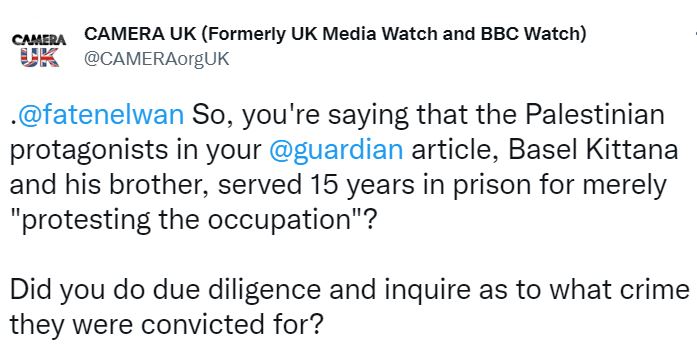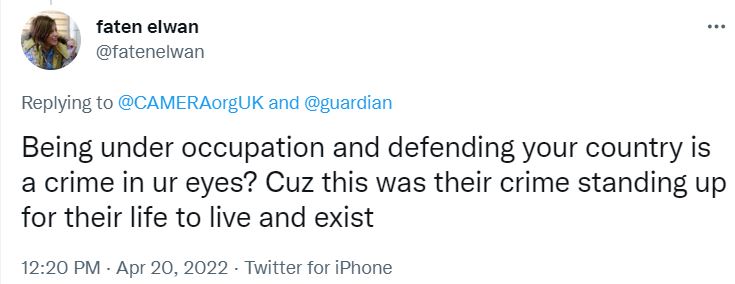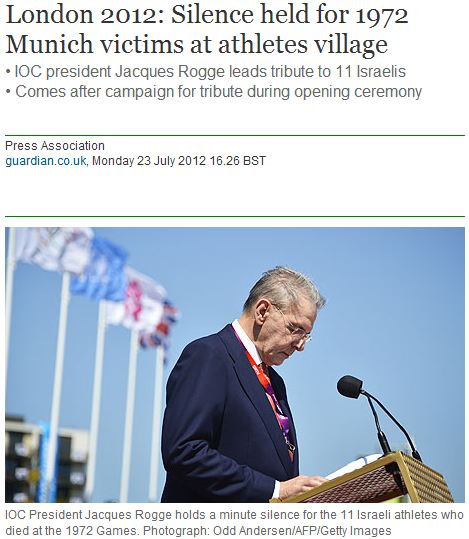Last week, we tweeted journalist Faten Elwan a simple question, based on a highly unlikely claim in her Guardian article (“Rebuilding Nablus: the brothers bringing life to ancient Palestinian streets”, April 15) published at the outlet’s Global Development page, which is supported by the Bill and Melinda Gates Foundation.
Here are the relevant passages:
With the rich aroma of Arabic coffee and with classical music in the background, Basel Kittana describes what makes the Antique Café in Nablus a place of salvation.
A derelict 500-year-old warehouse dating back to the Mameluke era, the cafe has become a place for young Palestinians to hang out in a part of the city they had long abandoned.
The warehouse was restored by Basel and his brother, Abdalrahman Kittana, and since it opened in 2019 the cafe has inspired young people to explore the city’s forgotten historic alleyways and be inspired to create their own hospitality and cultural hubs out of other abandoned buildings.
Detained as a 20-year-old after protesting against the Israeli occupation in Nablus in the West Bank in 2004, Basel, 38, says he got through 15 years in prison by dreaming of renovating ancient parts of his home town, which had suffered years of neglect and attacks.
…
The West Bank has seen many restoration projects launched in recent years after repeated Israeli attacks. However, these projects focus on locations of historic significance, and are largely funded by international institutions – funds the Palestinian brothers can’t access because they are regarded by some as “terrorists” because of the time they spent in jail.
A caption under a photo of Kattina in the article reads:
Basel Kittana on reception duty at the Turquoise hostel. He began restoring parts of Nablus after he was released from prison, where he’d served 15 years for protesting against the Israeli occupation
Here’s our tweet, trying to get to the bottom of why Kittana spent 15 years in jail and is “regarded by some” as a terrorist.

Here’s her response:

So, in response to our query concerning an unsourced and highly unlikely claim, which she published in a global media outlet, that her Palestinian protagonist served 15 years in an Israeli prison for merely “protesting the occupation”, the journalist spouted an unintelligible non-sequitur.
We then decided to looked into it ourselves, doing the fact-checking that Ms. Elwan should have done, and quickly confirmed, based on court documents (Hebrew), that Kittana was in fact convicted for acts of terror he perpetrated in 2002 – the height of the 2nd Intifada – which included firing at soldiers and throwing a grenade at them.
We’ll be complaining to Guardian editors, asking that the article be amended to note Kittana’s conviction for terror offences, including attempted murder.
Related Posts
Guardian obfuscates Palestinian desecration of al-Aqsa Mosque






People working for the Guardian can publish any false information as long as it vilifies and demonizes the State of Israel